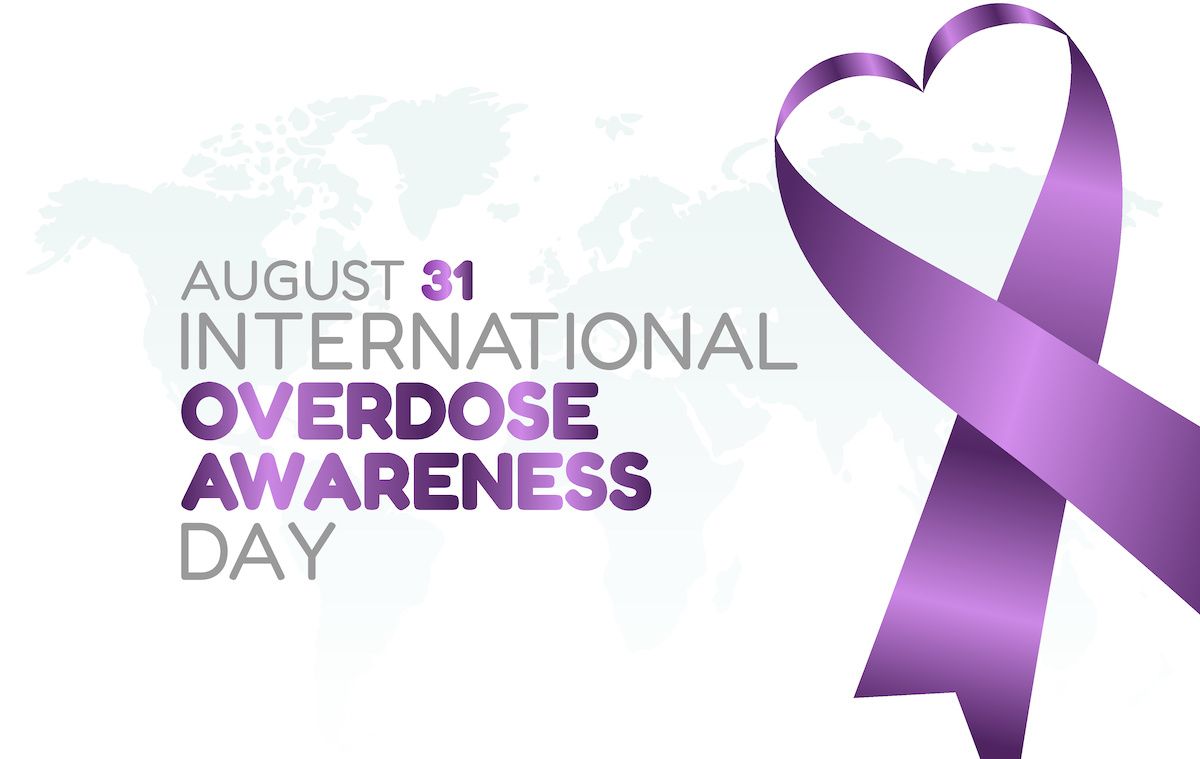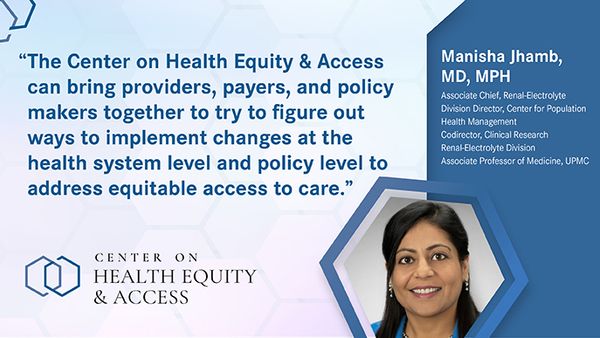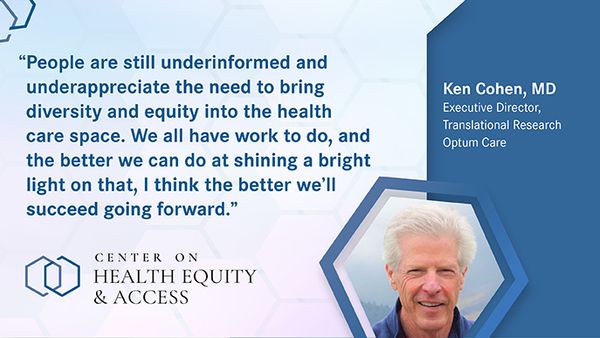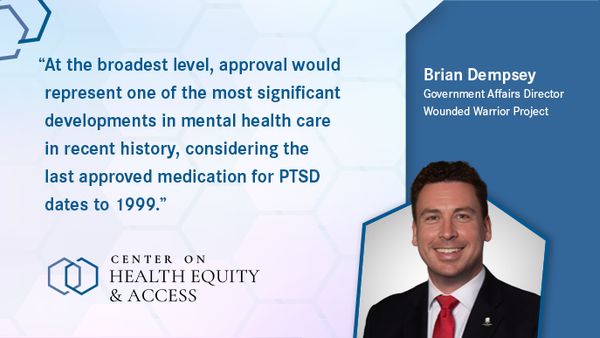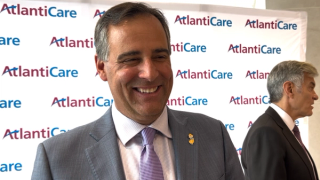
Center on Health Equity & Access
Latest News

Latest Videos
More News

Medicaid expansion significantly improves health coverage and access, yet several Southern states face a persistent coverage gap amid political challenges.
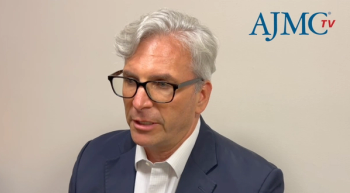
Yale Podnos, MD, MPH, FACS, discusses strategies to address social determinants of health in oncology, improve clinical trial enrollment for underserved communities, and leverage value-based care models to reduce financial toxicity and ensure equitable cancer care.
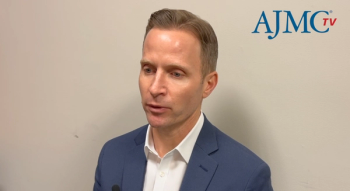
Daniel Virnich, MD, highlights the need for proactive social determinants of health screening, language-inclusive clinical trial practices, value-based treatment decisions, and policy reforms to improve equitable access to cancer care.

Targeted “Food is Medicine” interventions can help individuals with diet-sensitive chronic conditions improve their health, but nationally representative survey and qualitative interviews showed low awareness despite high interest among respondents.

Housing assistance significantly reduces medical financial hardship for renters with a history of cancer, enhancing their financial security and access to care amid rising health costs.

New research highlights which US counties lead in patient experience, health outcomes, and cost efficiency—and the policies that drive success.

The FDA has approved an updated COVID-19 booster while limiting access to high-risk individuals, amid ongoing debates on vaccine safety and efficacy.

Patients with acute respiratory failure who’ve been placed on a mechanical ventilator are less likely to be transferred to high-volume centers if they are uninsured, thus increasing their odds of mortality.

Medical school application and matriculation rates decreased for underrepresented racial and ethnic minorities in medicine after the 2023 Supreme Court affirmative action repeal.

In this episode, Richard A. Brook, MS, MBA, discusses his study showing that infertility treatment coverage increases assisted reproductive technology (ART) use and improves pregnancy outcomes.

The global incidence, deaths, and disability-adjusted life years tied to metabolic dysfunction–associated steatohepatitis (MASH)-related liver cancer have more than doubled in older adults since 1990, with a heavy impact on low- and middle-income countries.

Race, ethnicity, and social factors can influence survival outcomes in adults with relapsed or refractory B-cell acute lymphoblastic leukemia (B-ALL) receiving brexucabtagene autoleucel (brexu-cel).

Jonathan Thompson, MD, MS, explains how financial, insurance, and socioeconomic barriers limit equitable access to biomarker testing and advanced therapies, underscoring the need for provider advocacy and systemic support.

Treatment challenges that Anasuya Gunturi, MD, PhD, encounters in her work at Lowell General Hospital include language differences and confusion about scheduled appointments.

Making treatment for non–small cell lung cancer (NSCLC) accessible to a wide range of the population can help to improve outcomes from and knowledge of the condition.

New drugs aren't the only advances in oncology. Innovation includes collaboration between to remove barriers to remove barriers to care, according to experts who gathered for a session of the Institute for Value-Based Medicine in Arlington, Virginia.

Couples that were made up of 2 transgender women were less likely to contract HIV compared with couples that were made up of a transgender woman and a cisgender man.

A UK cohort study finds socioeconomic deprivation in early life is tied to greater eating disorder symptoms in adolescence, with barriers to care.

Climate-related disasters threaten US drug production, highlighting vulnerabilities in the pharmaceutical supply chain and the urgent need for strategic planning.
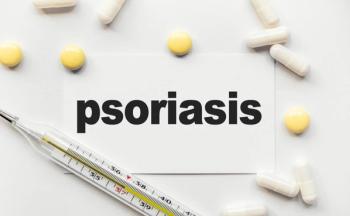
National Psoriasis Awareness Month offers an opportunity to examine how advances in systemic therapy, combined with patient-centered care models, are reshaping the treatment landscape.

Public awareness of human papillomavirus (HPV) and its link to cervical and oral cancers is alarmingly low in the US, especially in the Midwest and South.

Young transgender adults had increased adherence to long-acting pre-exposure prophylaxis (PrEP) when adherence was confirmed via blood testing and incentives were delivered in cash.
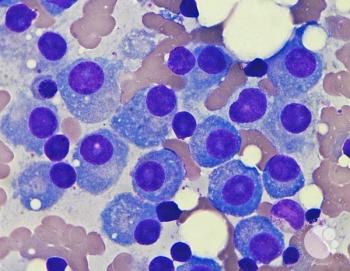
Past efforts to collect data and to understand the relationship between minimal residual disease and outcomes will help researchers in multiple myeloma develop a new generation of targeted therapies, decide when treatment can be stopped, and possibly screen populations for the disease.

A new national poll puts on full display the concerns of many parents that their children’s mental health and physical health are worsening, and that social media leads the way as a top cause.

Pediatric dermatology faces access disparities due to lack of awareness, language barriers, and training gaps in recognizing diverse skin conditions.
